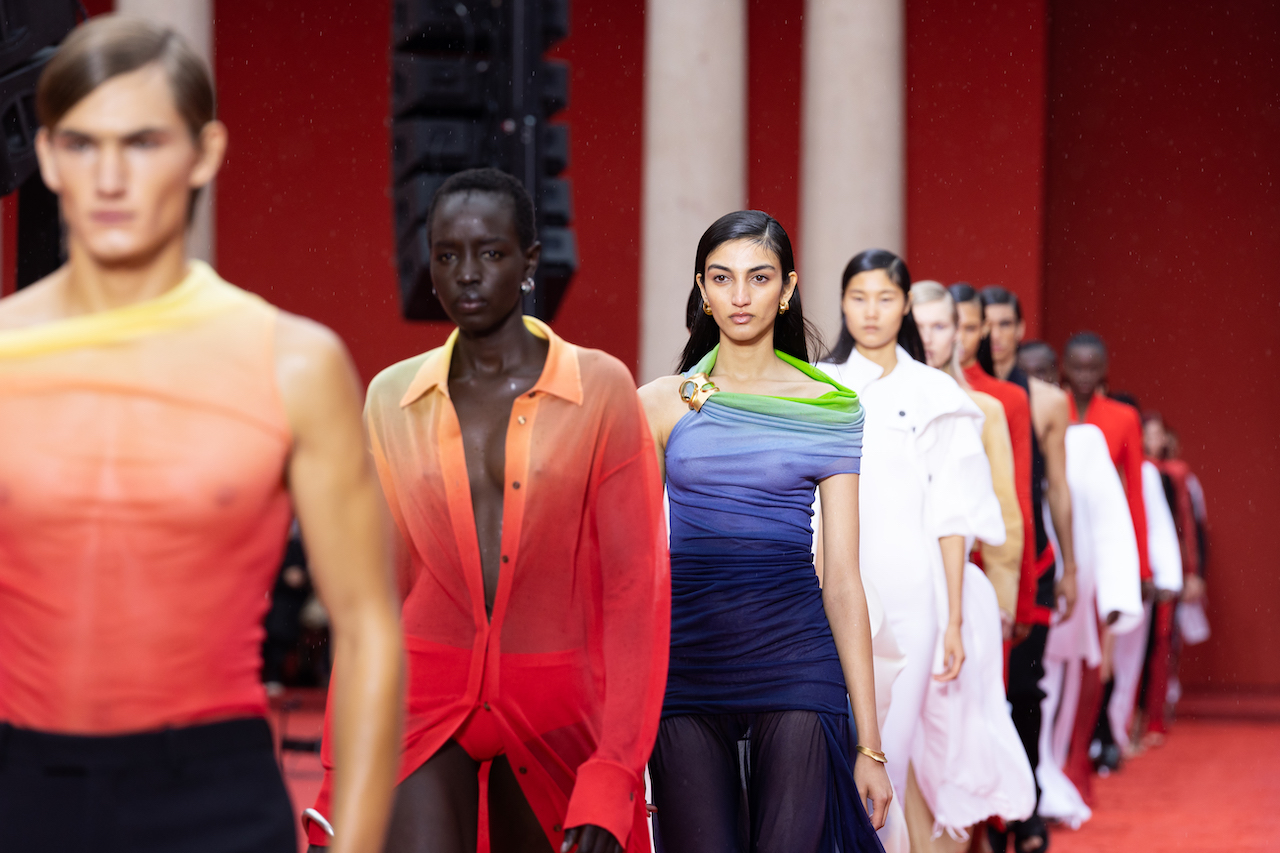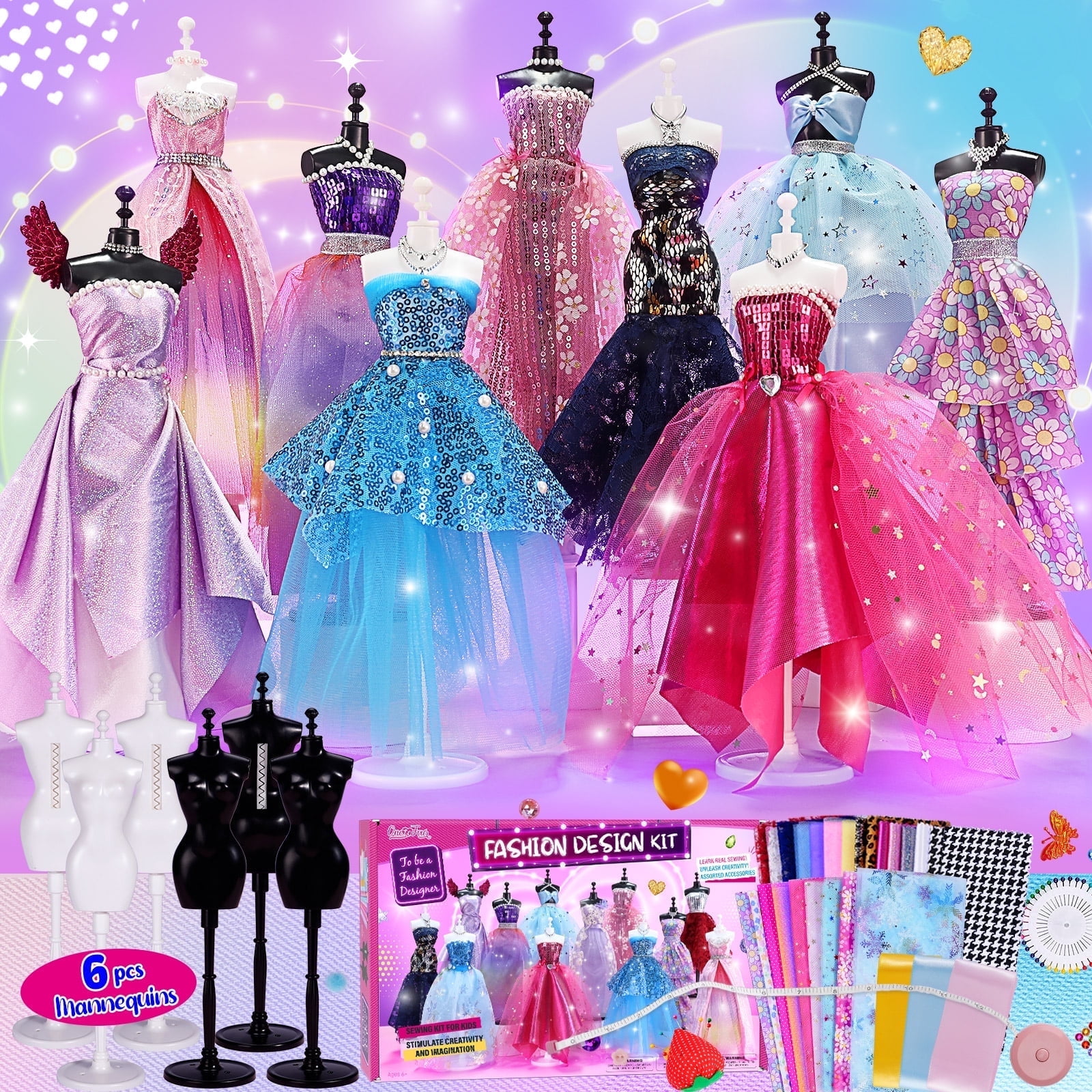Premium Fashion Sedgars Unveils Its Must-Have Winter Pieces
Premium Fashion Sedgars Unveils Its Must-Have Winter Pieces
Blog Article
The Influence of Lasting Practices on Modern Style Styles
Sustainable practices have actually reshaped modern style, driving a shift in the direction of environmentally friendly products and moral production. Designers currently prefer organic cotton, recycled fabrics, and cutting-edge textiles. Upcycling has changed waste right into special garments, while openness in sourcing has come to be vital. This development shows an expanding recognition among consumers about their purchasing selections. As the industry adapts, brand-new fads arise that challenge standard appearances. What might the future hold for style in this structure?
The Rise of Eco-Friendly Products
How have green materials changed the apparel industry? The emergence of environment-friendly products has substantially reshaped fashion, driving brand names to reconsider their sourcing and production procedures. These sustainable choices, including organic cotton, hemp, and recycled polyester, supply a reduced ecological impact contrasted to conventional fabrics. Developers are currently prioritizing these materials, acknowledging that customers increasingly favor brand names devoted to sustainability.This change has resulted in cutting-edge approaches, where style residences experiment with all-natural dyes and biodegradable textiles, enhancing both aesthetic charm and eco-friendly duty. In enhancement, collaborations between designers and sustainability-focused companies have accelerated the combination of green products right into mainstream collections.As an outcome, the apparel industry is observing a steady yet extensive modification, moving towards a more sustainable future. This commitment not just mirrors advancing customer worths however likewise demonstrates the potential for style to lead in ecological stewardship.
Upcycling: Changing Waste Into Style
Upcycling has become a transformative force in the style sector, converting disposed of materials into preferable garments and devices. This ingenious technique not only decreases waste but additionally urges creative thinking and creativity among designers. By repurposing things such as old garments, material scraps, and even non-textile products, upcycling produces distinct pieces that narrate, reflecting private design and ecological consciousness.Many modern brands and independent developers have actually accepted upcycling as a core practice, interesting customers who value sustainability and originality. The process commonly includes strategies like decoration, patchwork, or reconfiguration, permitting unlimited opportunities in design. As an outcome, upcycled style resonates with those looking for to make environmentally responsible selections while still expressing personal aesthetics.In significance, upcycling not just minimizes the ecological impact of fashion waste yet additionally cultivates a brand-new society of innovation and gratitude for craftsmanship within the market.
Ethical Production: Fair Labor and Transparency
Ethical production in vogue emphasizes the importance of fair earnings for workers, ensuring that laborers obtain just compensation for their initiatives. Transparency in supply chains is essential, enabling consumers to understand the beginnings of their garments and the conditions under which they are made. In addition, moral sourcing practices advertise responsibility in selecting products, enhancing the commitment to sustainability and social justice.
Fair Salaries for Employees
While the garment industry significantly welcomes lasting practices, ensuring fair incomes for employees remains an essential part of ethical manufacturing. Fair incomes not just equip workers however additionally improve the general top quality of life for individuals in the supply chain. Lots of brand names are currently adopting plans that prioritize fair compensation, recognizing that a sustainable future can not be built on exploitation. By devoting to fair pay, companies cultivate commitment and enhance performance among their employees (Sedgars South Africa). In addition, consumers are coming to be extra knowledgeable about labor concerns and are significantly requiring transparency pertaining to employees' rights. Therefore, brand names that focus on fair earnings are not only aligning with ethical requirements yet are additionally positioning themselves competitively in a market that values social obligation
Transparency in Supply Chains
The commitment to reasonable salaries is intrinsically connected to the wider problem of transparency in supply chains within the fashion business. Openness warranties that customers are informed concerning the beginnings of their garments and the conditions under which they are produced. Brand names that prioritize transparency usually publish in-depth records describing their supply chain procedures, labor techniques, and sourcing of materials. This openness cultivates depend on and commitment among customers that increasingly demand honest practices. Openness assists to hold companies responsible for their labor practices, making it possible for analysis and motivating enhancements. By disclosing the intricacies of their supply chains, brand names can contribute to an extra fair fashion ecosystem, ultimately promoting not just ethical production yet also lasting intake among their customers.

Moral Sourcing Practices
As consumers end up being more conscious of the effect of their investing in decisions, brands are significantly taking on moral sourcing practices that focus on reasonable labor and environmental sustainability. These techniques include ensuring that employees get reasonable earnings, secure working problems, and are treated with go right here dignity. Several fashion firms are moving away from exploitative labor practices and are rather collaborating with providers that stick to ethical requirements. Transparency in sourcing additional boosts consumer trust, as brand names reveal their supply chain techniques, enabling clients to make informed options. This shift towards ethical sourcing not just contributes to social duty but likewise resonates with a growing market that worths sustainability in style. Consequently, ethical sourcing is ending up being a defining attribute of modern-day style brands.
The Role of Modern Technology in Sustainable Fashion
Although the apparel industry has actually long been connected with waste and pollution, technology is progressively transforming it into a more lasting sector. Technologies such as 3D printing allow designers to create garments with much less material waste, while digital fabric printing enables on-demand production, reducing excess stock. Furthermore, improvements in recycling innovations are facilitating the repurposing of fabrics, reducing landfill contributions.In enhancement, data analytics and artificial knowledge help brands forecast patterns a lot more properly, ensuring they create only what is required. Blockchain innovation enhances openness in supply chains, enabling consumers to map the origins of their clothing and validate sustainable techniques. Moreover, wearable technology is advancing, promoting sturdiness and capability in vogue things. Via these technical developments, the apparel industry is gradually adopting an extra round economic situation version, cultivating lasting practices that could redefine its ecological impact.

Aware Consumerism: Moving Buyer Mindsets
Aware consumerism is reshaping the apparel industry as purchasers significantly focus on ethical fashion options. This change is driven by a demand for openness, compelling brands to divulge their methods and supply chains. Because of this, brand name loyalty is evolving, with customers most likely to sustain those that straighten with their values.
Moral Style Choices
Shifting customer mindsets towards moral style selections reflects a growing recognition of the impact of consumer behavior on the atmosphere and culture. Consumers are increasingly focusing on brands that stress honest manufacturing methods, lasting products, and fair labor problems. This adjustment is fueled by a wish to sustain companies that straighten with personal worths, promoting a more responsible fashion business. As a result, brand names are adapting their strategies, including openness and sustainability into their core goals. Ethical fashion choices not just test typical retail methods yet likewise urge consumers to review additional reading the lifecycle of their garments. This shift symbolizes a cumulative move towards a much more aware strategy to style, where the implications of purchases prolong past plain looks to include broader ecological and social considerations.
Impact of Openness

Brand Name Commitment Change
What drives customers to remain devoted to brand names in today's style landscape? Increasingly, sustainability plays an essential function. As recognition of ecological concerns grows, consumers are moving towards brands that demonstrate honest methods and transparency. This shift towards conscious consumerism has actually brought about a reevaluation of conventional brand loyalty, where worths line up much more closely with individual ethics. Brands that focus on lasting products, reasonable labor techniques, and green manufacturing techniques are typically compensated with customer commitment. This development is shown in buying choices, as purchasers are more eager to support brand names that add favorably to society. Sustainability has become not just an advertising device, but a specifying aspect in establishing enduring brand name links with a much more socially mindful and discerning customer base. Mindful The Influence of Sustainable Style on Trends
As consumers progressively focus on sustainability, the fashion business is experiencing a significant improvement in trends. This change has caused the rise of environmentally friendly materials, such as organic cotton, recycled polyester, and cutting-edge fabrics stemmed from lasting sources. Designers are increasingly concentrated on creating functional, durable garments that motivate mindful usage, relocating away from quick style's fleeting styles.Moreover, moral techniques are becoming a characteristic of brand name identity, with several firms highlighting their commitment to reasonable labor and environmental stewardship. The influence of sustainable style is likewise apparent in the popularity of second hand purchasing and clothing swaps, promoting a circular economy and lowering waste.Fashion programs and projects now this article typically feature sustainable collections, emphasizing the visual allure of eco-conscious choices. Overall, the influence of sustainable style on fads mirrors a more comprehensive societal shift in the direction of liable consumerism, forming the future of the market in extensive methods.
Future Developments in Eco-Conscious Design
The development of lasting style fads prepares for future technologies in eco-conscious style. As consumers progressively focus on ecological obligation, developers are checking out cutting-edge materials and strategies. Eco-friendly materials, such as mycelium and algae-based fabrics, are obtaining traction, promising to minimize waste and reliance on petroleum-based fibers.Moreover, advancements in innovation are paving the way for ingenious manufacturing methods. 3D printing, for circumstances, enables on-demand manufacturing, decreasing excess supply and resource intake. Circular fashion versions are also arising, stressing recycling and upcycling, allowing garments to have prolonged life cycles.Collaboration in between brands and technology firms is necessary for these innovations. By leveraging data analytics and expert system, developers can develop extra sustainable supply chains and reduce their carbon impacts. As eco-conscious methods remain to progress, they basically transform the style landscape, pressing the limits of creativity while protecting the earth.
Often Asked Concerns
Exactly How Can I Determine Lasting Fashion Brands When Shopping?
To identify sustainable style brand names while buying, one ought to seek qualifications, inspect materials, analyze manufacturing transparency, and research study brand name worths. Designer Store Sedgars. Engaging with consumer testimonials and sustainability reports can additionally assist enlightened investing in decisions
Are Second-Hand Garments Took Into Consideration Lasting Style?
Pre-owned garments are usually related to as sustainable fashion due to their duty in reducing waste and extending the lifecycle of garments. By acquiring secondhand items, customers add to a more green clothes economic climate.
What Is the Ecological Influence of Quick Fashion?
The environmental effect of rapid fashion is significant, contributing to air pollution, excessive waste, and resource deficiency. The market's quick manufacturing cycles often focus on profit over environmental sustainability, worsening environment change and damaging environments worldwide.
How Do Sustainable Practices Affect Style Rates?
Sustainable practices typically result in higher production expenses due to ethical sourcing and environmentally friendly materials. Sedgars South Africa. Style prices might boost, mirroring the financial investment in ecological obligation and fair labor methods, which can impact consumer acquiring choices.
Can Lasting Style Be Stylish and trendy?
The question of whether lasting style can be stylish and elegant usually occurs. Many developers currently blend environment-friendly products with cutting-edge layouts, proving that sustainability and contemporary visual appeals can exist side-by-side, attracting a fashion-conscious target market. Lasting methods have improved modern-day fashion, driving a change towards green materials and ethical manufacturing. While the style sector progressively welcomes lasting techniques, guaranteeing fair salaries for employees remains an essential component of ethical production. Conscious consumerism is improving the fashion market as customers progressively focus on honest style selections. The impact of sustainable style is likewise noticeable in the appeal of thrift buying and garments swaps, lowering and promoting a round economic situation waste.Fashion programs and projects now often feature sustainable collections, highlighting the visual allure of eco-conscious choices. To identify sustainable style brands while purchasing, one ought to look for accreditations, scrutinize products, evaluate manufacturing transparency, and research brand values.
Report this page